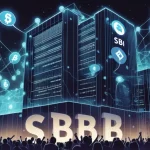Cardano’s Nikhil Joshi Urges Strategic Tokenization Over Hype

Cardano Insider Nikhil Joshi Debunks Key Tokenization Myths
Nikhil Joshi, the Chief Operating Officer at EMURGO and a pivotal figure in the Cardano ecosystem, is bringing a dose of reality to the hype surrounding tokenization. Joshi warns against the rush to tokenize everything, advocating instead for a strategic approach that prioritizes real utility over speculative frenzy.
- Strategic approach to tokenization
- Potential of tokenized private credits
- Risks of indiscriminate tokenization
- Benefits for DeFi and global economy
- Ripple Labs’ involvement in tokenization
Tokenization of real-world assets (RWAs) involves converting physical assets like real estate, art, or commodities into digital tokens that can be easily traded on blockchain platforms. Joshi emphasizes that this process should not be driven by the allure of quick profits. Instead, he suggests focusing on use cases that genuinely make things better and more useful. “Teams should be strategic and not driven by speculation,” he advises, highlighting the pitfalls of what he calls “over-tokenization”—the misguided practice of tokenizing assets without clear benefits.
Joshi’s caution is crucial in a space where the temptation to tokenize everything can lead to what he terms “tokenitis.” This is like putting a ‘smart’ label on every device in your home, but Joshi warns it’s not that simple. Tokenizing for the sake of tokenizing is a recipe for disaster, leading to speculative bubbles that could burst at any moment.
One area where Joshi sees significant potential is in the tokenization of private credits. He believes this could be a game-changer, offering immediate opportunities to increase transparency and liquidity in financial markets.
Private credit is the big immediate opportunity.
This pragmatic view cuts through the noise, focusing on tangible benefits that could bridge the gap between traditional finance and the digital asset world. For example, tokenizing private credits could allow more investors to participate in previously inaccessible markets, fostering greater financial inclusion.
Tokenizing RWAs isn’t just about individual gains; it’s about expanding the possibilities within decentralized finance (DeFi). By tokenizing these assets, DeFi platforms can access a broader range of collateral options, which can enhance lending, staking, and yield generation. This could be a significant step forward in making DeFi more robust and accessible. Imagine being able to use a tokenized piece of art or a share in a real estate project as collateral for a loan on a DeFi platform—it’s a game-changer.
Moreover, Joshi sees tokenization as a catalyst for global economic growth. By bringing real-world value and regulatory compliance into the blockchain space, RWAs could unlock new investment opportunities worldwide, reducing fraud and improving access to markets. This vision aligns with the broader mission of decentralization and financial freedom, core tenets of the cryptocurrency movement. Tokenized assets could reach a staggering $19 trillion by 2033, according to projections. This figure is derived from estimates of the total value of real estate, art, and other assets that could be tokenized, with sectors like real estate and private equity expected to drive this growth.
While Joshi offers a critical perspective from within the Cardano ecosystem, it’s worth noting that other players are also making significant strides in the tokenization market. Ripple Labs, for instance, is actively pursuing this sector, aiming to be at the forefront of bringing more financial assets on-chain. Their efforts highlight the competitive nature of the tokenization space and the various approaches being taken to revolutionize finance. Ripple’s partnerships with companies like Zoniqx, Archax, and Palisade illustrate real-world applications and collaborations in the sector, further emphasizing its potential.
As we navigate this exciting yet complex landscape, Joshi’s insights serve as a reminder that not all that glitters in the crypto world is gold. The true value of tokenization lies in its ability to solve real problems and enhance real-world applications, not in speculative bubbles that could burst at any moment. Bitcoin maximalists might argue that tokenization distracts from Bitcoin’s core mission, but Joshi believes that strategic tokenization can coexist with and even enhance the broader crypto ecosystem.
On the technical side, tokenization on the Cardano blockchain involves creating digital representations of assets through smart contracts. These smart contracts ensure the security and integrity of the tokenized assets, allowing them to be traded seamlessly on the blockchain. While this process is complex, it’s designed to be accessible and efficient, enabling even non-technical users to participate in the tokenization revolution.
In this journey towards a more decentralized and efficient financial system, it’s crucial to keep our eyes on the prize—real utility and genuine innovation. As Joshi aptly puts it, the path forward is not about tokenizing everything in sight but about strategically leveraging blockchain technology to create tangible benefits for all. Will we see a world where tokenization truly transforms finance, or will it be another bubble waiting to burst?
Key Questions and Takeaways:
- What is Nikhil Joshi’s stance on tokenization?
He advocates for a strategic, use-case-driven approach rather than indiscriminate tokenization.
- What specific opportunity does Joshi highlight in the RWA tokenization sector?
He sees tokenized private credits as a major short-term opportunity due to their potential for increased transparency and liquidity.
- What is “tokenitis” according to Joshi?
It refers to the practice of tokenizing assets without clear utility or benefit, simply because it is possible.
- How can tokenization of RWAs benefit DeFi?
By expanding collateral options, it can facilitate lending, staking, and yield generation in DeFi platforms.
- What broader impact can RWAs have on the global economy?
They can unlock global economic growth by bringing real-world value and regulatory compliance to blockchain technology, improving global access to investments, and reducing fraud.
- What role is Ripple Labs playing in the tokenization market?
Ripple Labs is actively pursuing the tokenization agenda and aims to be at the forefront of this sector.



